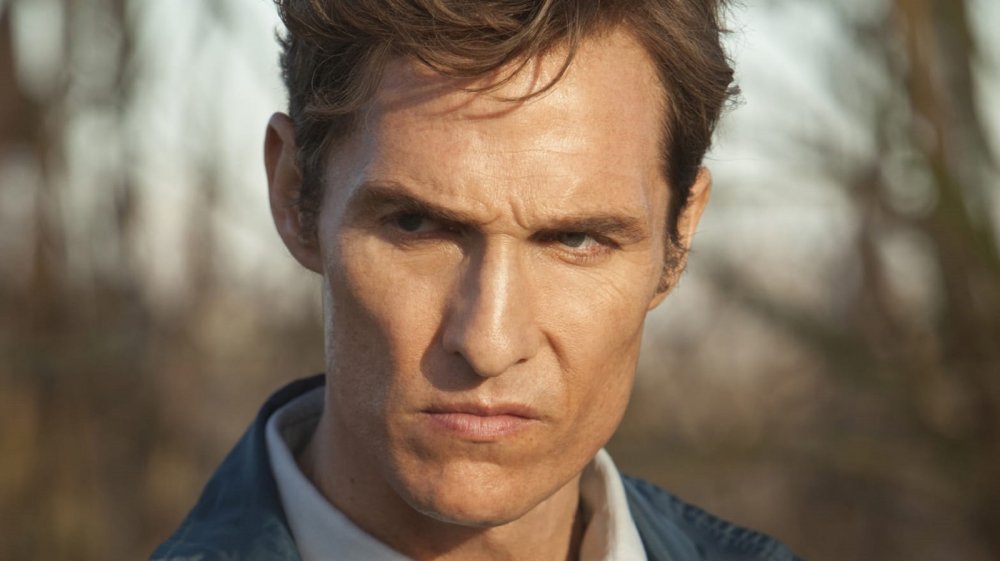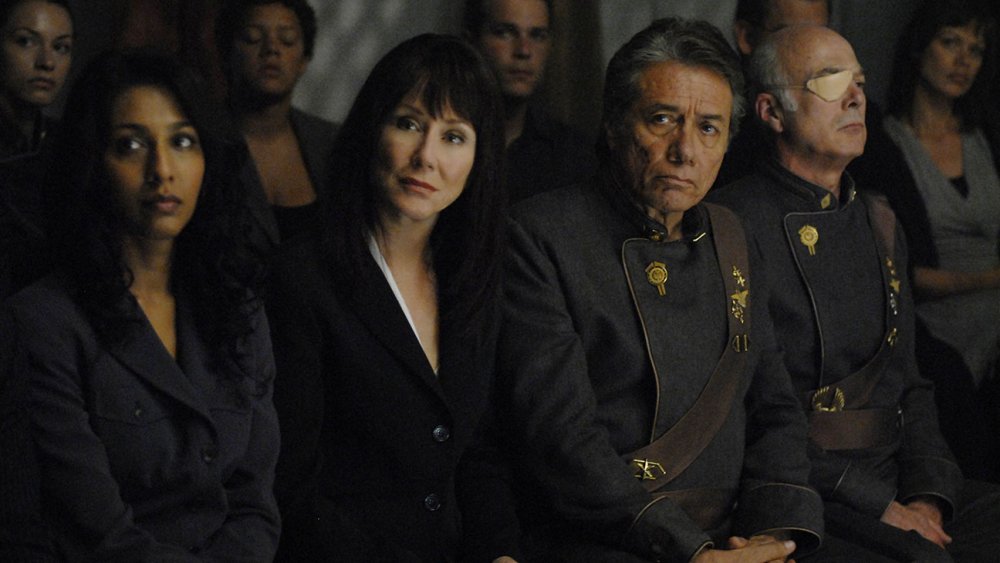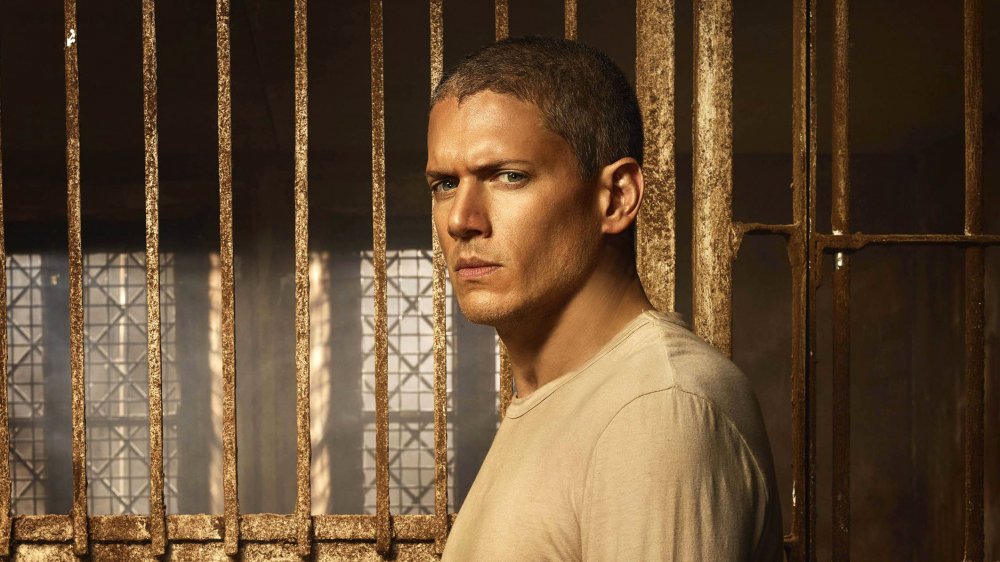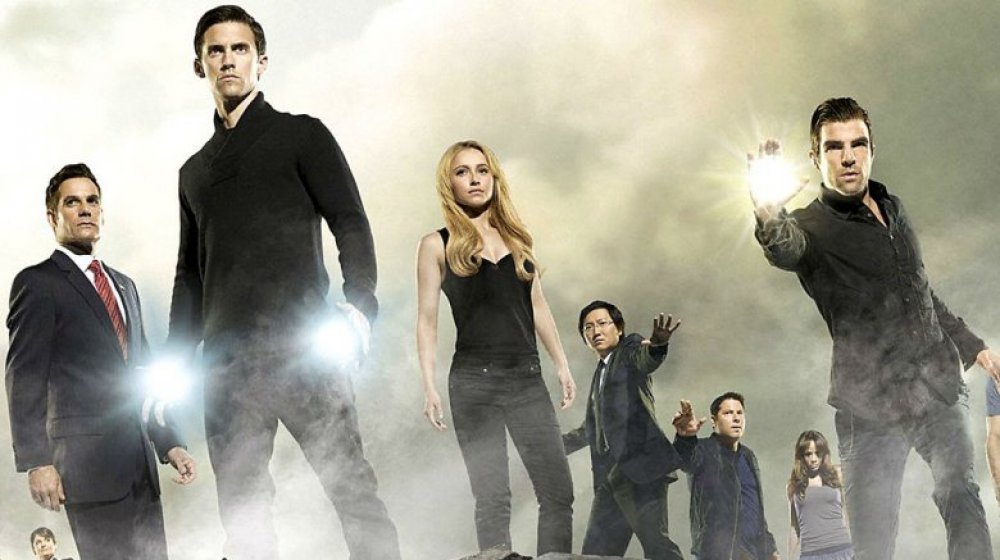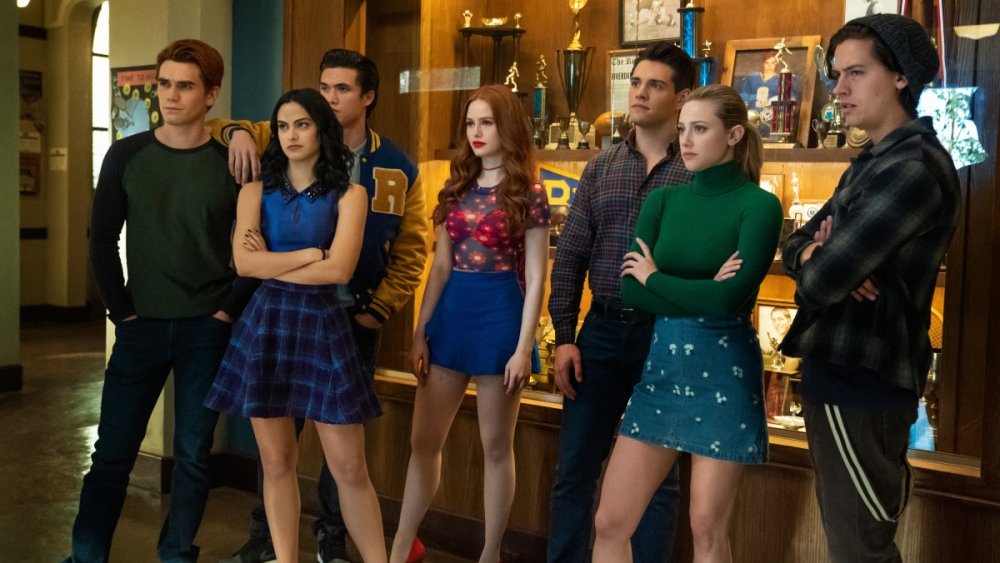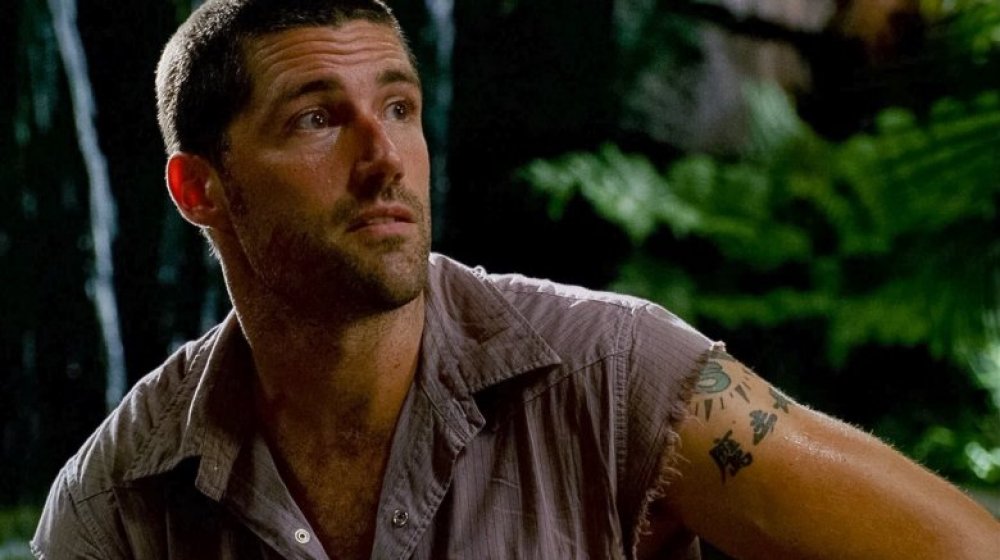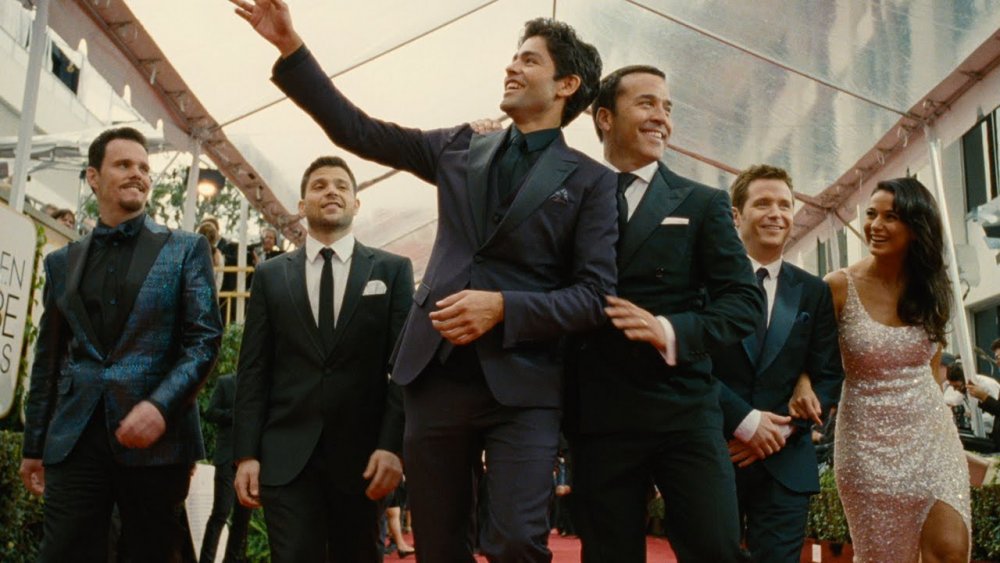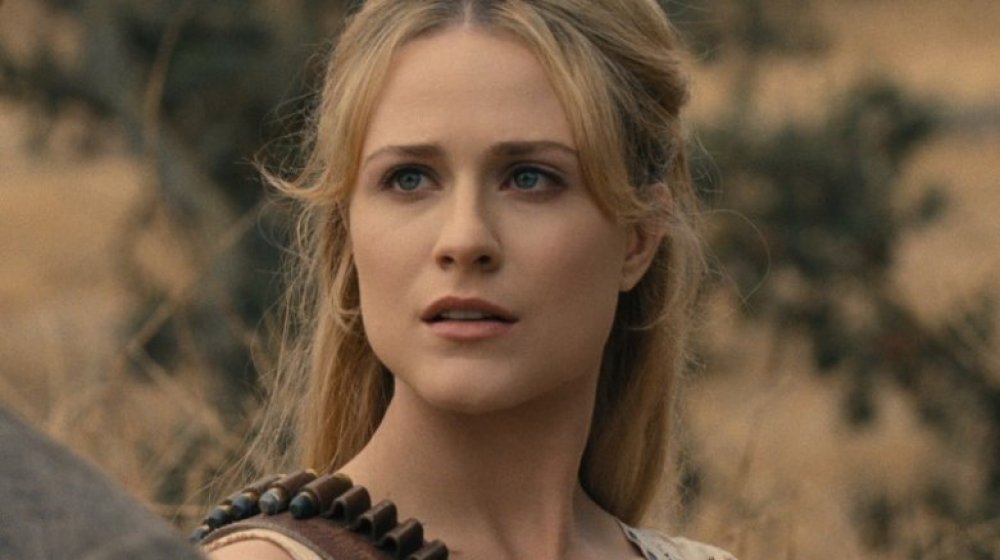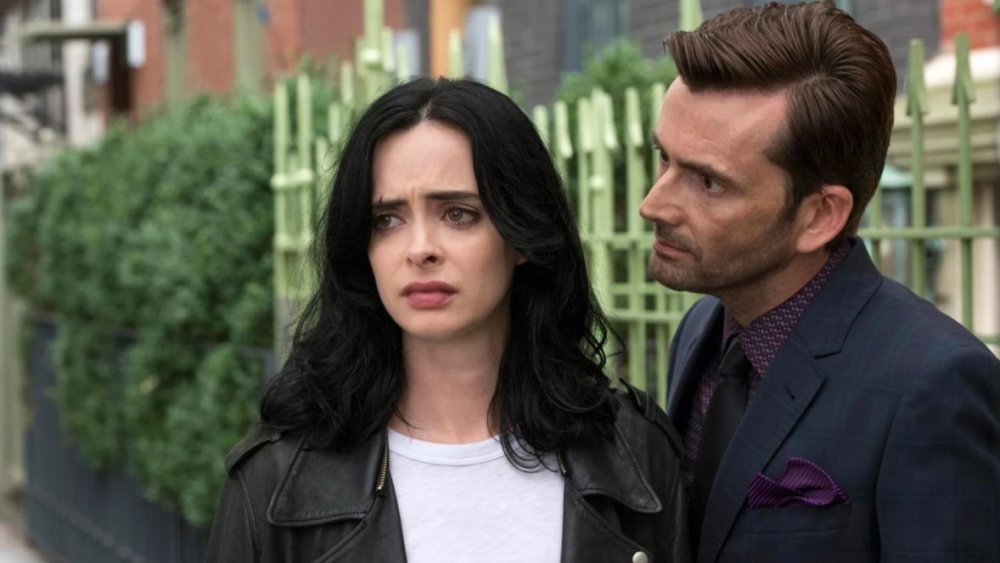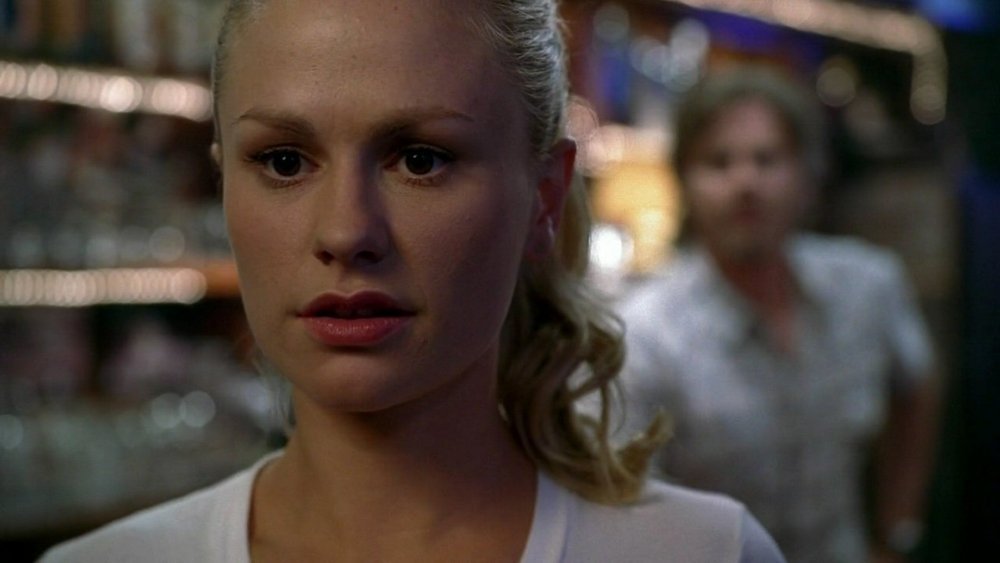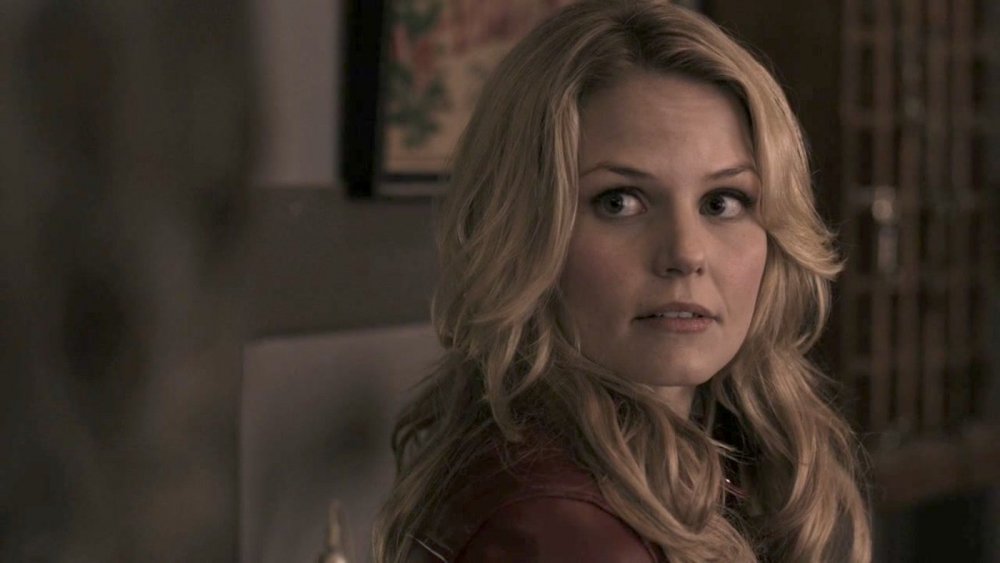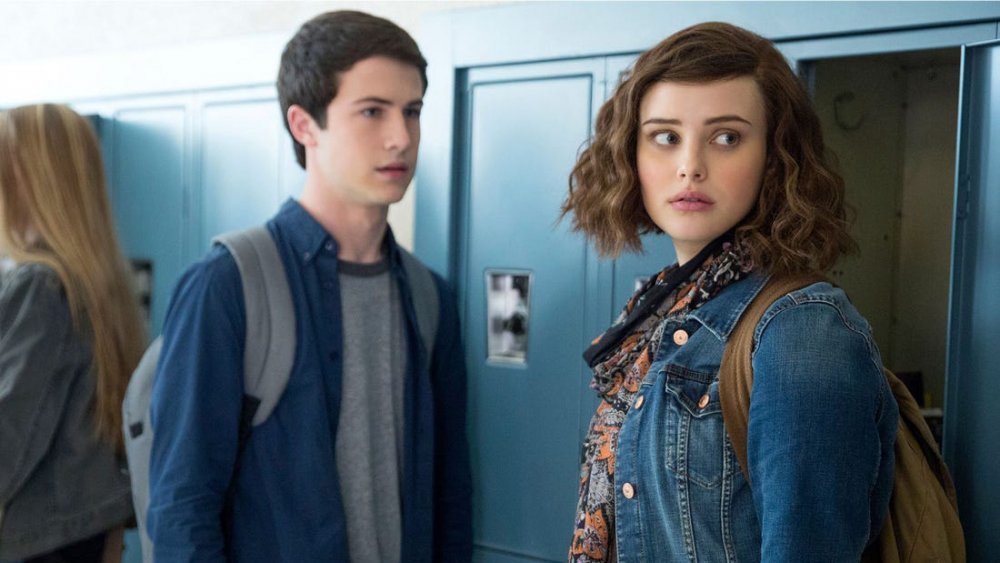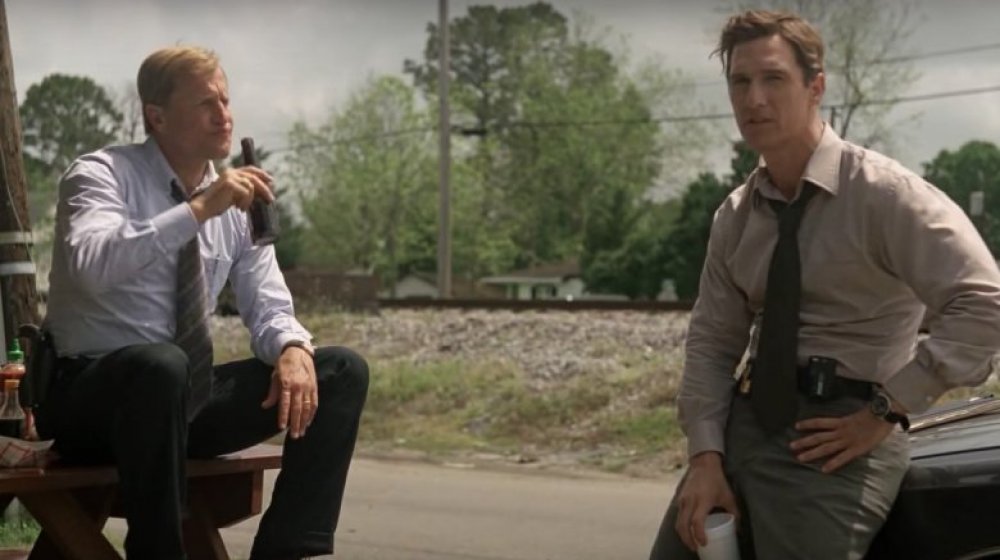TV Shows That Got Worse After Their First Season
Television debuts can be pretty difficult, but if a show knocks it out of the park right out of the gate, it can give TV fans a new obsession to discuss and get excited about for years to come. Truly great pilots and amazing first seasons can accomplish a lot, from setting up complicated fantasy universes to introducing fascinating characters, and if a showrunner manages to make a legitimately great first season, they'll hook fans for the foreseeable future.
With that said, it's definitely possible — and frighteningly easy — to experience a sophomore slump, leaving a great first season to stand alone as its own product. The reverse can also happen, with plenty of television shows wildly improving after dismal or disappointing first seasons, but when a show has an incredibly strong outing only to flounder later, that particular reveal can be infuriating and devastating for fans. Here are some TV shows that, sadly, only went downhill after exciting, thrilling, and even great first seasons.
After the first season, Battlestar Galactica got stuck in its own mythology
Sometimes, when a show sets up its universe with an insanely dense mythology — not to mention when it's a remake of a previously beloved campy sci-fi staple — it can be impossible to keep it up after a full season, which is exactly what went wrong with Battlestar Galactica. Ronald D. Moore's reboot of the 1970s series premiered in 2004 (after a three-hour miniseries kicked things off in 2003), audiences loved the realistic, post-9/11 take on a story they'd seen before, set in a faraway galaxy torn apart by a war between the human Colonies and the Cylons, androids hellbent on destroying humanity. As the titular ship, the Battlestar Galactica is one of the only remaining military vessels, with Commander William "Bill" Adama (Edward James Olmos) and President Laura Roslin (Mary McDonnell) aboard and fighting against the Cylons.
After a well-received first season, Battlestar Galactica engaged in way too much wheel-spinning as it got in its own way trying to solve its own mysteries, bringing major characters like Starbuck (Katee Sackhoff) back as angels and revealing the five remaining Cylons in the most ridiculous way possible during its third season ("All Along the Watchtower," anyone?). In fact, some fans recommend simply stopping Battlestar Galactica halfway through, letting fans enjoy its highlights in peace.
Prison Break couldn't keep up with its premise
Fox's 2004 high-concept series Prison Break sounds like it probably should've been a one-season miniseries based on the title alone, and unfortunately, that self-fulfilling prophecy came true over time. Led by Wentworth Miller and Dominic Purcell, who play two brothers who work together to get Burrows (Purcell) out of prison for a crime he didn't commit, Prison Break's first season was made possible by other high-concept shows like Lost and Heroes, despite doubts that it would make sense for multiple seasons. Ultimately, that concern proved pretty legitimate.
Though the first season was well-received by critics, the show faced diminishing returns in subsequent seasons. However, it somehow pushed on for an astonishing five seasons with 90 episodes in total. With Burrows, his brother, and other escaped inmates on the run, Prison Break desperately tried to expand its story, even spawning a spinoff series with Proof of Innocence. A sixth season was announced in early 2018, but in the end, Fox definitely confirmed they wouldn't continue the Prison Break story, putting an end to this series once and for all.
Heroes stopped being super in its second season
High-concept shows are clearly pretty difficult to keep going over an extended period of time, which is a lesson that Heroes ultimately learned after its extraordinarily popular first season. When the show, which focused on seemingly ordinary people who discover distinct and sudden superpowers, premiered on NBC in the fall of 2006, critics fell in love with this daring new series, one that featured appealing young stars like Zachary Quinto, Milo Ventimiglia, and Hayden Panettiere.
However, Heroes suffered from an immediate decline as soon as its second season aired, which was criticized for being much slower and way less fun than its debut. It got to the point where the show's stars, like Ventimiglia, told outlets they were giving Heroes their "best effort," while creator Tim Kring was forced to admit that he lost the series' direction during its second season, going so far as to tell his fans that he was "super sorry" about whatever happened to Heroes. However, the show lasted for four seasons, getting worse and worse as it went on and becoming a grim, unpleasant shadow of its former self. It's been said that you either die a hero or live long enough to be the villain. Unfortunately, Heroes became the latter.
Riverdale tried way too hard to be shocking
Yet another installment in the teen soap genre, only this time based on the popular Archie comic series, Riverdale was a hit right out of the gate, which wasn't entirely surprising. Released on The CW in 2017, Riverdale served as a dark, gritty retelling of Archie, narrated by Jughead (Cole Sprouse), as the small town of Riverdale tries to grapple with the death of the teenaged son of the wealthy Blossom family. With beautiful young stars like KJ Apa, Lili Reinhart, and Camila Mendes paired alongside former teen movie staples like Skeet Ulrich, Molly Ringwald, and even the late Luke Perry, Riverdale amassed an instant fandom with its first season.
Unfortunately, Riverdale started losing footing in its second season due to a series of increasingly lurid subplots concerning everything from gangs to murderers, jumbling together every possible attempt at shock value together until the show became largely incomprehensible. Though Riverdale is still relatively popular, even its most diehard fans have to admit it's only getting more and more ridiculous as it goes on, and at this point, it's anybody's guess as to how the minds behind Riverdale will continually try to heighten the action and stakes going forward.
Lost got ... lost
The first season of Lost may well go down as one of the greatest "mystery box" shows in history, which makes it all the more frustrating when you remember how badly the show stumbled later on. Created by J.J. Abrams and Damon Lindelof, Lost tells the story of the group of survivors of Oceanic Flight 815, a plane flying from Australia to Los Angeles that crashes on a remote desert island. Once they arrive, the castaways struggle to survive and realize they must now deal with way more than they bargained for, including mysterious smoke monsters, polar bears, and all sorts of supernatural happenings. The series also popularized the use of flashbacks and flashforwards, playing with time in an incredibly inventive way rarely seen on television in 2004.
Unfortunately, after a truly incredible first season that set up an impossible number of mysteries to be solved, Lost simply lost its way. Part of this is simply because Abrams left to direct Mission: Impossible III, and part of this is simply due to sloppy writing and the fact that the show constantly introduced brand new mysteries rather than solving the ones that already existed. In the end, Lost lurched its way to an unsatisfying finale, providing an incredibly disappointing ending in the aftermath of a legendary debut season.
Entourage just kept repeating itself
As an answer to raunchy female-driven series like Sex and the City, HBO, for whatever reason, decided to give their male audiences a sexy, soapy series to call their own, resulting in Entourage. Created by Doug Ellin, the series chronicles the filthy, fabulous adventures of Vincent Chase (Adrian Grenier), a young and majorly successful movie star, and his titular entourage of friends who've stuck by his side since childhood. Set up as a fantasy for the many, many people without inside knowledge of Hollywood's excesses, Entourage gave audiences a glimpse of the wild, extravagant lifestyles of the movie industry's richest and most famous players.
The first season of Entourage was a solid, buzzy hit, but as the series continued, audiences started to realize just how repetitive the entire show really was. Pretty much every season saw Vincent getting a huge movie role, blowing all his money, going broke, struggling, and then ... booking another huge movie role, and so on and so forth. (Beyond that, the show has aged pretty terribly, trafficking in outright racism, sexism, and homophobia on a pretty constant basis.) Entourage ended up running for eight seasons — and even spawned a feature film — but eventually, fans and critics alike stopped wanting to hang out with this particular gang.
Westworld got away too confusing after its first season
When Westworld — created by Jonathan Nolan and his partner, Lisa Joy — premiered on HBO in 2016, it quickly became one of the network's buzziest and most popular shows, even during the heyday of Game of Thrones. Based on Michael Crichton's movie of the same name, Westworld tells the story of a theme park designed for the pleasure of the uber-wealthy, where patrons can act out their Wild West-based fantasies among the park's "hosts" — extraordinarily realistic androids that live, die, and love for the entertainment of their guests.
With a talented cast led by Evan Rachel Wood, Thandie Newton, James Marsden, Jeffrey Wright, and even Sir Anthony Hopkins, as well as an intensely clever plot, Westworld seemed poised to inherit the appointment television crown that Thrones would vacate just a few years later. However, Westworld's second season never quite captured the lightning-in-a-bottle feeling of its debut, showing off super complicated plots that seemed as if they existed simply to confuse the audience. By the time the show's third season premiered in 2020, largely without fanfare, it simply seemed as if everybody had largely stopped caring about Westworld, which was never as big as it was during its first season. Westworld will surely stick around for years to come, but the heights of its first season are simply impossible to match.
Jessica Jones floundered after she beat the bad guy
Before Disney+ debuted in November of 2019 and Marvel's television projects vacated their previous homes for the new streaming service, Netflix was home to several original Marvel shows, including the dark, intense Jessica Jones.
Created by Twilight veteran Melissa Rosenberg, Jessica Jones cast Krysten Ritter in the leading role as a grizzled private detective blessed with incredible superpowers who also spends the entire first season overcoming intense trauma. Before the events of the first season, Jessica was the victim of mental, physical, and sexual abuse at the hands of Kilgrave (David Tennant), who's arguably one of the scariest villains in all of Marvel and who can make his prey do anything he wants with a simple order, from obeying his every whim to killing themselves. To take down Kilgrave, a fellow tormented soul who chose evil over healing, Jessica must confront her trauma, bringing a grounded and realistic approach to a high-concept superhero series.
Unfortunately, after Jessica disposes of Kilgrave at the end of the first season, Jessica Jones' second season feels disappointing, mostly because Kilgrave is such an effective and frightening villain that nobody else feels as imposing. Though Jessica Jones' ensuing two seasons were good enough, they never matched its first season, thanks in large part to Kilgrave's character and David Tennant's commanding performance.
True Blood lost its bite
Based on Charlaine Harris' soapy series of novels, True Blood — which served as a steamy staple for HBO, as well as a commentary on LGBTQ+ issues — imagined a world where vampires walk among humans, aided by the invention of synthetic blood called "Tru Blood" that allows them to feed without killing. Focusing on Sookie Stackhouse (Anna Paquin), a telepathic waitress who discovers she can't hear vampires' thoughts, True Blood's first season was an unqualified success, mixing heightened, ridiculous elements with solid performances and a plot that closely mirrored Harris' first book.
However, as True Blood grew in popularity, it became more and more ridiculous, adding supernatural elements like faeries, werewolves (and, inexplicably, werepanthers), and letting any realistic elements fall by the wayside in favor of gratuitous "sexposition" and shocking moments. By the time True Blood ended — pairing Sookie off with a random human instead of any one of the vampires or werewolves jockeying for her attention and wildly disappointing pretty much every single viewer across the board — fans had largely stopped caring about True Blood, which, sadly, became less and less relevant after its fun first season.
Once Upon a Time had way too many characters
When Once Upon a Time premiered on ABC in 2011, it introduced viewers to the small Maine town of Storybrooke, where nothing is as it seems. In the real-world timeline of the show, Emma Swan (Jennifer Morrison) and her son live an unassuming life in Storybrooke. However, when they discover that the town's inhabitants all have a past as different fairytale characters, the plot thickens, and eventually, Emma finds herself at the center of several classic stories and part of some pretty incredible adventures.
Upon its debut, Once Upon a Time was an instant hit, drawing viewers in thanks to its new spin on familiar stories, but it took its newfound fame a bit too far as the show continued. After starting off with fairytale staples like Prince Charming, an evil queen, Snow White, and more, the show simply kept adding character after character until seemingly every fairytale character in existence was a part of the action, including Captain Hook and the Wicked Witch of the West. In the end, Once Upon a Time tried to do too much too quickly and largely stopped making sense, proving that this idea, while ambitious, really only worked for a single season.
There was no reason for more 13 Reasons Why
In 2017, Netflix found itself with a major hit on its hands thanks to 13 Reasons Why, an adaptation of Jay Asher's novel of the same name that portrays difficult topics like teen suicide, sexual assault, and depression. The title refers to a box of cassette tapes left behind by Hannah Baker (Katherine Langford), who's already taken her own life by the time the series begins. Upon finding the cassettes she left behind, her classmate, Clay Jensen (Dylan Minnette), works to figure out what drove Hannah to commit such a tragic act, and he realizes that Hannah, as well as most of his other classmates, were or are hiding serious traumas just below the surface. Beyond that, Hannah's suicide has a ripple effect on their small town, which is felt deeply by everybody, from her school friends to their parents.
With a self-contained first season, 13 Reasons Why was largely successful and well-received, despite some understandable concern from critics that the show glamorized suicide, as well as a graphic scene of self-harm that was ultimately removed from the service. However, after the first season's popularity, Netflix opted to continue the show for three more seasons, which introduced frustrating new characters and pushed the series to its breaking point. In the end, there weren't really any reasons why 13 Reasons Why needed to continue after its first season.
If you or anyone you know is having suicidal thoughts, please call the National Suicide Prevention Lifeline at 1-800-273-TALK (8255).
After its first season, True Detective couldn't crack the case
There are few shows in recent memory that squandered basically all of their goodwill between their first and second seasons, and unfortunately, one of the biggest examples that comes to mind is HBO's True Detective. Introduced as an anthology series in 2014 with Matthew McConaughey and Woody Harrelson in the leading roles, True Detective planned on telling different mysteries in each season. After an explosively popular first season, which saw McConaughey's Rust Cohle and Harrelson's Marty Hart hunting a dangerous murderer over the course of several decades, expectations were incredibly high, and unfortunately, the second season failed those expectations pretty spectacularly.
After sweeping the Emmys and earning tons of fame and acclaim, True Detective returned in 2015, featuring Colin Farrell, Vince Vaughn, and Rachel McAdams, and fans immediately noticed a difference. This decline in quality was partly due to the exit of original showrunner Cary Joji Fukunaga — who would return to the series later — as well as an incredibly dull and convoluted plot. Ultimately, True Detective's second season turned out to be an enormous disappointment. Though its third season, which starred Academy Award winner Mahershala Ali, garnered favorable reviews, fans had largely stopped watching, which after season two's myriad disappointments, comes as no surprise.
